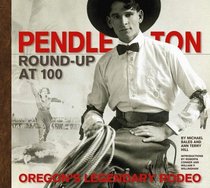Search -
Pendleton Round-Up at 100: Oregon's Legendary Rodeo
Pendleton RoundUp at 100 Oregon's Legendary Rodeo
Author:
Pendleton Round-Up At 100 is a full-color celebration of the first one hundred years of this classic rodeo. Over five years were spent in researching and writing Pendleton Round-Up At 100, to give full justice to its rich and uniquely American history; its importance to cowboys and Indians; and its enduring appeal in Oregon, the West, and the wo... more »
Author:
Pendleton Round-Up At 100 is a full-color celebration of the first one hundred years of this classic rodeo. Over five years were spent in researching and writing Pendleton Round-Up At 100, to give full justice to its rich and uniquely American history; its importance to cowboys and Indians; and its enduring appeal in Oregon, the West, and the wo... more »
ISBN-13: 9780882407739
ISBN-10: 0882407732
Publication Date: 8/1/2009
Pages: 300
Edition: Ill
Rating: ?
ISBN-10: 0882407732
Publication Date: 8/1/2009
Pages: 300
Edition: Ill
Rating: ?
0 stars, based on 0 rating
Publisher: Graphic Arts Center Publishing Company
Book Type: Hardcover
Other Versions: Paperback
Members Wishing: 3
Reviews: Amazon | Write a Review
Book Type: Hardcover
Other Versions: Paperback
Members Wishing: 3
Reviews: Amazon | Write a Review
Genres:




